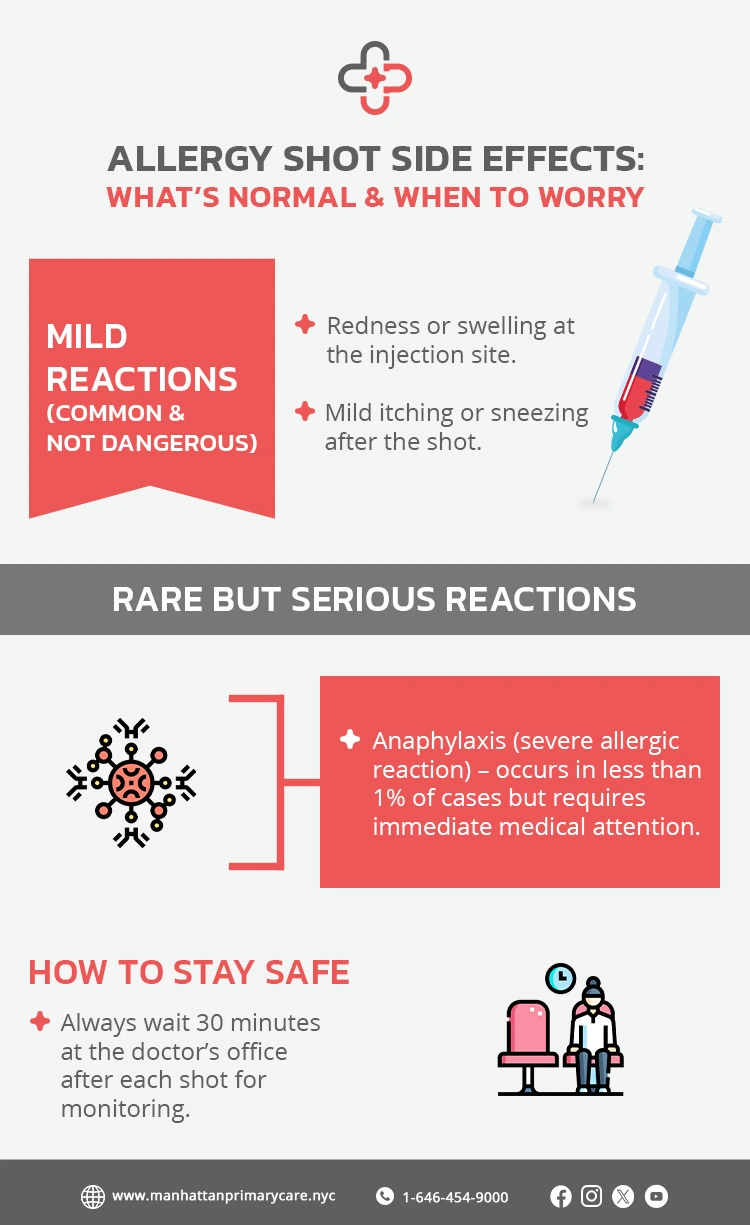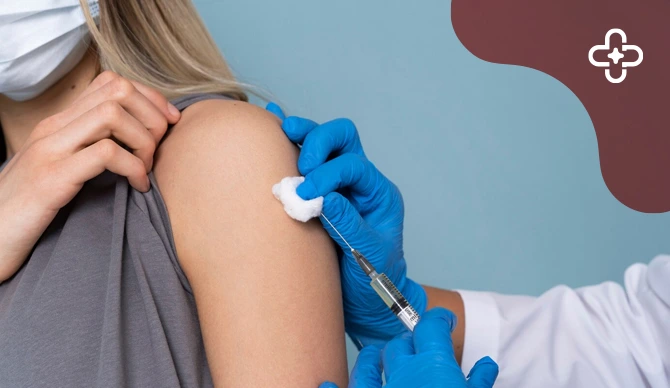If you’re tired of sneezing, itchy eyes, and congestion every allergy season, you may be wondering: Are allergy shots worth it? Do they actually work? And how long does it take to see results?
Allergy shots, also known as allergy immunotherapy, offer a long-term solution to allergy sufferers by reducing symptoms and improving quality of life. But how do they work? How long do they last? Are there any side effects to worry about? Rest assured, allergy shots are an FDA-approved, well-researched treatment recommended by allergists and immunologists worldwide.
What Are Allergy Shots? A Long-Term Allergy Treatment
Allergy shots are a form of allergy immunotherapy designed to help your body build resistance to allergens over time. By receiving small, controlled doses of allergens, your immune system gradually adapts, reducing allergic reactions.
Who Can Benefit?
- People with seasonal allergies (pollen, grass, trees)
- Individuals with pet allergies (cats, dogs)
- Those allergic to dust mites or mold
- People with insect venom allergies (bee stings)
Do Allergy Shots Work?
Clinical studies confirm that allergy shots significantly improve symptoms in many patients. Unlike antihistamines, which only mask symptoms, allergy shots target the root cause of allergic reactions by gradually desensitizing the immune system.
Allergy Shots Are Most Effective For:
- Hay fever (pollen allergies)
- Pet allergies (cats, dogs)
- Dust mite and mold allergies
- Bee sting allergies
How Long Do Allergy Shots Take to Work?
Allergy shots involve two phases:
1. Build-Up Phase (3-6 months):
- Weekly injections to gradually introduce allergens to your system.
2. Maintenance Phase (3-5 years):
- Monthly injections to reinforce long-term immunity.
When will you feel relief? Many patients notice improvement within 6 months to a year.
Types of Allergy Injections & Treatment Process
Types of Allergy Injections:
- SCIT (Subcutaneous Immunotherapy): Traditional allergy shots injected into the arm.
- SLIT (Sublingual Immunotherapy): Allergy drops placed under the tongue (an alternative to shots).
How to Get Started:
- Allergy testing to identify specific allergens.
- A customized treatment plan created by an allergist.
Allergy Shot Side Effects: What’s Normal & When to Worry


Mild Reactions (Common & Not Dangerous):
- Redness or swelling at the injection site.
- Mild itching or sneezing after the shot.
Rare But Serious Reactions:
- Anaphylaxis (severe allergic reaction) – occurs in less than 1% of cases but requires immediate medical attention.
How to Stay Safe:
- Always wait 30 minutes at the doctor’s office after each shot for monitoring.
Allergy Shots vs Steroid Shots: What’s the Difference?
Allergy Shots (Immunotherapy):
- Long-term solution that modifies immune response
- Requires multiple injections over time
Steroid Shots for Allergies:
- Provides quick relief but temporary (lasts weeks to months)
- Not a cure—best for short-term symptom control
Which is better? If you want lasting results, allergy shots are the best choice.
Where to Get Allergy Shots & What They Cost
Where to Get Allergy Shots:
- Allergist offices and immunology clinics
- Some primary care doctors (varies by location)
- Manhattan Primary Care, where we offer expert allergy shot treatments tailored to your needs
How Much Do Allergy Shots Cost?
- Insurance coverage: Many plans cover allergy shots since they are a medical treatment.
- Out-of-pocket cost: Ranges from $1,000 to $4,000 per year without insurance.
Conclusion
Allergy shots are one of the most effective long-term treatments for allergies, gradually building immunity to allergens and significantly reducing symptoms over time. While they don’t provide instant relief, they are a well-researched, FDA-approved treatment with mild side effects that are generally manageable. Serious reactions are rare, but it’s always best to consult an allergist to determine if immunotherapy is right for you. Preventive care plays a crucial role in managing allergies effectively, and seeking treatment early can help reduce long-term complications. If you’re tired of relying on temporary solutions, allergy shots could be your best option for lasting relief.
Frequently Asked Questions
Can allergy shots prevent new allergies?
Yes, they may help, especially in children, by modifying immune responses and reducing future sensitivities.
Do allergy shots work for food allergies?
No, they are only for environmental allergens. Food allergies require different treatments.
Can I take antihistamines while on allergy shots?
Yes, they can help reduce mild reactions, but consult your doctor first.
Are allergy shots safe during pregnancy?
Continuing shots is usually safe, but starting new treatment is not recommended.
Can I exercise after an allergy shot?
Avoid strenuous activity for two hours to lower the risk of adverse reactions.
Disclaimer
This blog is for informational & educational purposes only and does not intend to substitute any professional medical advice or consultation. For any health-related concerns, please consult with your physician, or call 911.
